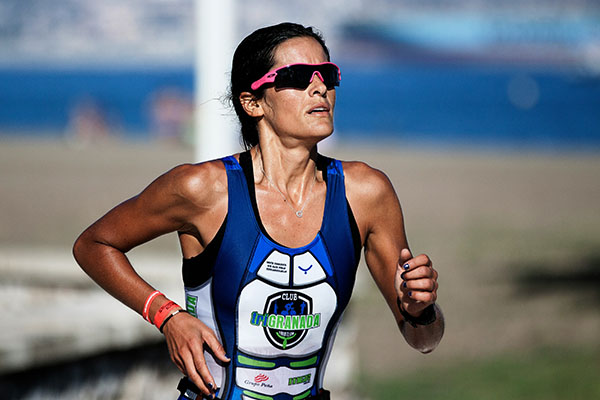Alright, so if you’ve ever wondered what’s beyond an Ironman (yep, beyond the already massive challenge of a 3.8 km swim, 180 km bike ride, and 42.2 km marathon), welcome to the world of ultra triathlons. These races take triathlons to an extreme level that honestly sounds a bit, well, unreal. Imagine distances that range from twice to ten times the length of a typical Ironman.
When I first read about ultra triathlons, my jaw kind of dropped. I haven’t even tackled an Ironman yet, still training for it, taking small steps, but this ultra stuff is on my bucket list. There’s something about the idea of taking on what seems impossible that’s just addictive. So, what is an ultra triathlon? Let’s talk about it.

Ultra Triathlon Distances: How Far Are We Talking?
These aren’t standard distances. You don’t have a “set” ultra triathlon, as race lengths vary, but here’s a glimpse of the insane distances ultra triathletes regularly attempt:
- Double Ironman
- Swim: 7.6 km (4.7 miles)
- Bike: 360 km (223.7 miles)
- Run: 84.4 km (52.4 miles, or a double marathon)
- Triple Ironman
- Swim: 11.4 km (7.1 miles)
- Bike: 540 km (335.5 miles)
- Run: 126.6 km (78.6 miles)
- Deca Ironman
- Swim: 38 km (23.6 miles)
- Bike: 1,800 km (1,118.5 miles)
- Run: 422 km (262 miles, or ten marathons)

Facing the Beast: The Physical and Mental Challenges of an Ultra
Reading about these distances makes me think about all the times I’ve trained in rough conditions, when it was too hot, too cold, when I was sore, or just tired from a long week. Ultra triathlons take these training challenges to a whole new level. Athletes have to push through sleep deprivation, physical exhaustion, and mental fog, all while keeping up with intense fueling needs.
- Physical Endurance Beyond Limits
Ultra triathlons are basically a huge physical endurance test. Imagine being on a bike for a full day, then lacing up for a double marathon. It’s not just that your body hurts, it’s that your mind starts to fight you at every turn. From muscle cramps to joint pain, every part of you is screaming to stop. - Sleep Deprivation
Here’s the thing: in continuous ultra triathlons, there isn’t much time for sleep. Athletes have to manage their sleep around racing, so many nap for maybe 20-30 minutes at a time if they’re lucky. Imagine biking for hours, napping, and then running for hours more, each leg of the race starts to feel like a dream (or nightmare). - Nutrition and Hydration
I’ve read about how crazy the nutrition needs get for ultra athletes. You burn through thousands of calories every day and have to keep refueling constantly. It’s not just water, but electrolytes, carbs, protein, and snacks that won’t upset your stomach when you’re already so worn down. That’s why ultra triathletes often bring an entire team with them, coaches, medics, and even family or friends, to help track every bite and sip. - Mental Toughness
Ultra triathletes often say that the mental challenge is the real beast. Think about hitting a wall physically and mentally with hours, sometimes days, still to go. You’d have to really know how to manage your own thoughts, push past self-doubt, frustration, even fear. Visualizing the finish line, thinking about why you started, and focusing on each small step are just some of the mental tricks athletes use to keep going.
Why Attempt an Ultra? Isn’t It Just Torture?
For some, ultra triathlons are the ultimate test of human limits. Completing one is often less about the competitive aspect and more about personal growth, resilience, and discovery. Many people describe it as an experience that changes their life, teaching them mental endurance and self-belief they never thought possible.
So, why do people do it? Some reasons I’ve come across:
- Pushing the Boundaries: Ultra triathlons let athletes see just how far they can go. There’s this feeling that if you can survive an ultra, there’s almost nothing you can’t handle.
- Self-Discovery: These races strip you down to your core. Facing fears, managing pain, and getting through fatigue make it impossible not to learn something deep about yourself.
- The Camaraderie: Ultra triathlon events foster this incredible sense of community. There’s a bond among athletes and their teams because everyone knows just how intense this journey is.

My Road to (Maybe) an Ultra
Right now, I’m still at the starting line of my journey. I haven’t done an Ironman yet, but it’s definitely on my bucket list. I’m focusing on small steps, upping my training distances, learning how to recover faster, and managing nutrition better. Tackling something as intense as an ultra triathlon might be a few years off for me, but it’s something I think about every time I hit a new goal in training.
For now, I’m still learning the basics and pushing myself in manageable increments. But the idea of one day attempting an ultra is something that keeps me motivated. To me, the journey to getting there is just as important as the race itself. It’s not just about saying “I did it”, it’s about finding out what I’m truly capable of.
Training Tips for Ultra Aspiration (From a Beginner’s Perspective)
If you’re like me and thinking about one day taking on an ultra triathlon, here are a few training tips I’m picking up along the way:
- Build Endurance First
Don’t rush. Start by building a strong endurance base. I’m focusing on adding longer sessions to my routine, especially on the bike and run, so I can handle longer periods of steady effort. - Strength and Mobility Matter
I used to think triathlon training was just about cardio, but strength training has been a game-changer. Core and leg strength can reduce injury risk and help with endurance, so I’m squeezing in strength workouts at least twice a week. - Nutrition Is Key
I’m still dialing in my nutrition strategy, but I’m learning to fuel properly during workouts. I practice eating small, easy-to-digest carbs mid-run or ride, which helps avoid that “bonk” feeling when energy plummets. - Mental Conditioning
One thing I’ve started doing is visualizing the tougher parts of races or training sessions, imagining how I’ll push through when things get rough. It’s a mental hack that I’m hoping will come in handy when I eventually move up to bigger races. - Recovery Is Essential
This one’s easy to overlook, but rest days and recovery sessions are now non-negotiable for me. Stretching, foam rolling, and taking time off all help with long-term progress. I remind myself that recovery isn’t weakness; it’s part of the training.

Final Thoughts
While an ultra triathlon is still a dream for me, I’m taking the journey one small step at a time. I’m building up my strength, endurance, and mental resilience, and enjoying the process. It’s about learning what I’m capable of and not letting fear or doubt hold me back.
Maybe someday I’ll be able to say I completed one of those monstrous distances, but for now, I’m just focusing on the basics. If you’re considering something like an ultra triathlon, my advice would be to keep it fun, stay humble, and keep pushing those boundaries. You never know just how far you can go until you try.




